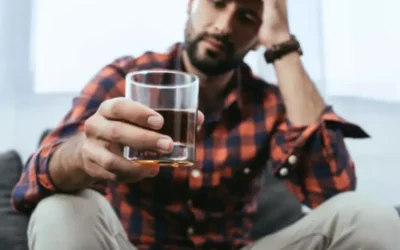- Sorularınız mı var?
Reason for the Body to Have Hot Flushes After Drinking Alcohol
Content
Alcohol puts the brakes on your body’s defenses, or immune system. Your body can’t make the numbers of white blood cells it needs to fight germs. So for 24 hours after drinking too much, you’re more likely to get sick. Long-term heavy drinkers are much more likely to get illnesses like pneumonia and tuberculosis. It’s a disorder in which your body’s nerves are damaged due to drinking alcohol.
You feel hot from drinking alcohol because you are losing heat through your skin. A link exists between alcohol and low body temperature, and it is known that people who are drunk are at risk of hypothermia. If someone has developed alcohol dependency, they may experience excessive sweating, hot flashes, and night sweats if they stop drinking. When these toxic byproducts remain in the body, side effects like flushed skin, nausea, vomiting, rapid heart rate, headache, and more can occur.
Combining Codeine & Alcohol: What Are the Dangers & Risks?
During a hangover, your body temperature rises from the low body temperature you may have had when you were drunk. When people with AUD stop drinking, they will often experience alcohol withdrawal symptoms. These symptoms occur within a few hours or days after the person’s last drink. Menopause is a universal experience for all women who have a menstrual cycle.
If you experience these symptoms along with regular night sweats, you may be going through alcohol withdrawal. Alcohol affects the central nervous system, the circulatory system, and virtually every part of your body. Drinking can increase your heart rate and widen blood vessels in your skin. However, a more serious cause of night sweats is alcohol consumption.
Is It Dangerous To Get Hot When You Drink Alcohol?
Or it might damage the nerves and tiny hairs in your inner ear that help you hear. However it happens, drinking means https://ecosoberhouse.com/sober-house-boston/ you need a sound to be louder so you can hear it. Drinking heavily for a long time has been linked to hearing loss.
It causes the blood vessels in the skin to dilate, shunting blood from the center to the peripheries. The body temperature is not actually changing; there is just redistribution of heat as seen flushing and fever after drinking. However, as mentioned above, one should be careful when drinking in cold weather.
Can I continue to drink alcohol if I have alcohol intolerance?
Fortunately, there are new alcohol reduction options that do not require you to identify as an alcoholic, or even quit completely. You can now get weekly coaching support, anti-craving medications, handy digital tools, and more—all from an app on your smartphone. These symptoms must greatly affect and cause you not to do well in school, work, or relationships.

In fact, feeling heavy, numb, or swollen in your feet are some of the side effects of alcoholic neuropathy. Symptoms of an alcohol allergy include rashes, itchiness, swelling and severe stomach cramps. Allergy symptoms are often more painful does alcohol make you sweat and uncomfortable than alcohol intolerance symptoms. In rare cases, if untreated, an alcohol allergy can be life-threatening. For cases wherein one cannot stop drinking alcohol, long-term alcohol treatment centers can be of great help.
Women going through menopause also experience hot flashes naturally and drinking alcohol can worsen these symptoms. Dilated blood vessels cause the skin to feel warm and flushed, which can trigger the release of sweat. However, as many people drink alcohol in the evening, night sweats are common. Hot flashes, night sweats, and excessive sweating are considered to be normal physiological changes that occur during menopause. However, it may be interesting to note that the excessive sweating caused by menopause is considered to be a type of secondary generalized hyperhidrosis. Companies like Carpe, make antiperspirant lotions that can reduce sweating production and make you more comfortable.
Does alcohol make your body temperature hot?
A Change in Body Temperature
Alcohol widens your blood vessels, making more blood flow to your skin. That makes you blush and feel warm and toasty. But not for long. The heat from that extra blood passes right out of your body, causing your temperature to drop.